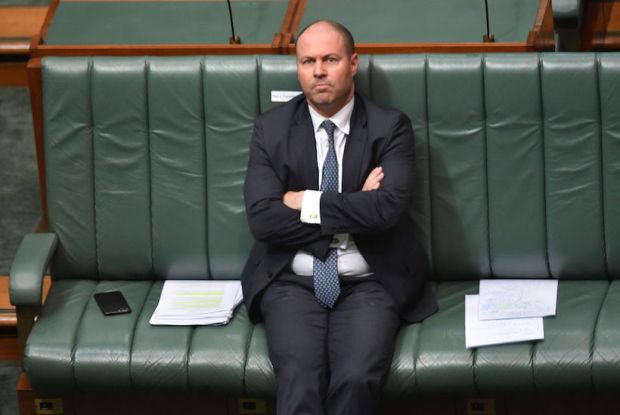The Federal government’s small business agency, the Small Business Ombudsman, has called for major changes to the way the Australian Taxation Office operates. The Ombudsman, Kate Carnell, says “the time is right for Government to deliver a [tax administration] system that suits the small business sector”.
We at Self Employed Australia totally agree. The ATO’s approach to small business is bullying, unfair and oppressive. We’ve been highlighting this since around 2012 and have been calling for major change. See our 20-minute video.
The Ombudsman has recommended 25 specific changes to the operations of the ATO. (See pages 6-8 of her report) The recommendations are practical and sensible. The one we highlight as top of our list is Recommendation 21. This says:
ATO to be prohibited from charging penalties and interest, issuing garnishee notices or instigating other recovery action on tax debt … until all avenues of appeal taken by the small business taxpayer are exhausted, with general interest charges (GIC) to be applied only from that time.
This is sensible, totally fair and hugely important. And it comes within the context of a big increase in small business tax debt to $21 billion during Covid.
But it’s essential to be clear about what this tax debt actually is. It’s made up of (a) tax actually owed, (b) interest and (c) penalties the ATO adds on. The ATO has continually refused to give the split of these items in reply to parliamentary questions. But here’s just one case as an example.
A small business that we’ve been working with for many years has a tax dispute over $83,576 the ATO says is owed over 2 years.
The ATO has added $41,788 in penalties and $99,600 in interest (approximately) to today’s date. That is, the ATO says around $225,000 is owed. The dispute and appeals process has been ongoing for seven years.
However, if the Ombudsman’s recommendation were applied, the actual debt would be $83,576.
This highlights how important Recommendation 21 is. It is a reform which would produce an honest reflection of the truth of the actual tax debt.
In other words, the ATO’s approach to tax debt is, in our view and experience, shonky and misleading. In the case outlined above the real tax debt is only 34 per cent of the ATO’s claim. On this basis the ATO’s headline-grabbing ‘$21 billion’ of small business debt would really only be $7 billion. The point is that we need facts and truth, not misleading media-grabbing headlines.
The Ombudsman’s Recommendation 21 would push toward the truth and make ATO debt management fair and much more efficient. But there’s more.
The ATO would be required to apply definitions consistent with other government departments on key issues such as employee-contractor. The ATO has a long history of botching such definitions resulting in the artificial creating of false tax debts. The ATO has no expertise in this area whereas the Fair Work Ombudsman for example does. The ATO should be subservient to the expertise of the FWO on such matters.
The ATO also has a terrible history of using sham, ‘kangaroo court’ style appeals processes to bludgeon small businesses into giving up. This results in taxpayers paying more tax than the correct tax. The Ombudsman has recommended making permanent an internal ATO Small Business Independent Review that has been piloted. If genuine independent reviews can be locked in the focus should shift to ensuring taxpayers pay the correct tax.
The ATO is subject to oversight by the Inspector General Taxation Ombudsman and can investigate individual taxpayers treatment. Incredibly the IGTO has to request ATO access to records. The Small Business Ombudsman says the IGTO should have unrestricted access to all taxpayer records.
The list goes on. Legal professional privilege should be extended to registered tax or BAS agents. What it isn’t already?
People who make disclosures about bad ATO behaviour to the Tax Ombudsman should have protections. This should extend to ATO employees. Currently anyone who exposes ATO misbehaviour is routinely subject to ATO harassment in the form of legal attack by the ATO. It’s a silencing mechanism.
I’ve focused in this summary just on recommended reforms to some of the ATOs debt collection administrative processes. But understanding these administrative processes is essential to understanding how the ATO currently operates. There is no concept of ‘rule of law’ in how the ATO operates. Instead the ATO is able to and systemically does operate as an intimidatory and bullying organization.
Truth and tax facts are near irrelevant to how the ATO functions. The misleading ‘lies’ on the size of small business tax debt demonstrated above is just one example.
The Small Business Ombudsman’s recommended reforms are important and practical. They will make for a better tax system. But be warned. Reforms must be implemented through legislation. If reforms are left to ATO internal policy processes the reforms will be corrupted.
Ken Phillips is Executive Director of Self Employed Australia
Got something to add? Join the discussion and comment below.
Get 10 issues for just $10
Subscribe to The Spectator Australia today for the next 10 magazine issues, plus full online access, for just $10.


























Comments
Don't miss out
Join the conversation with other Spectator Australia readers. Subscribe to leave a comment.
SUBSCRIBEAlready a subscriber? Log in